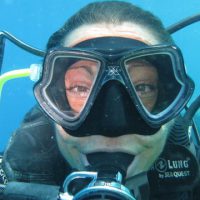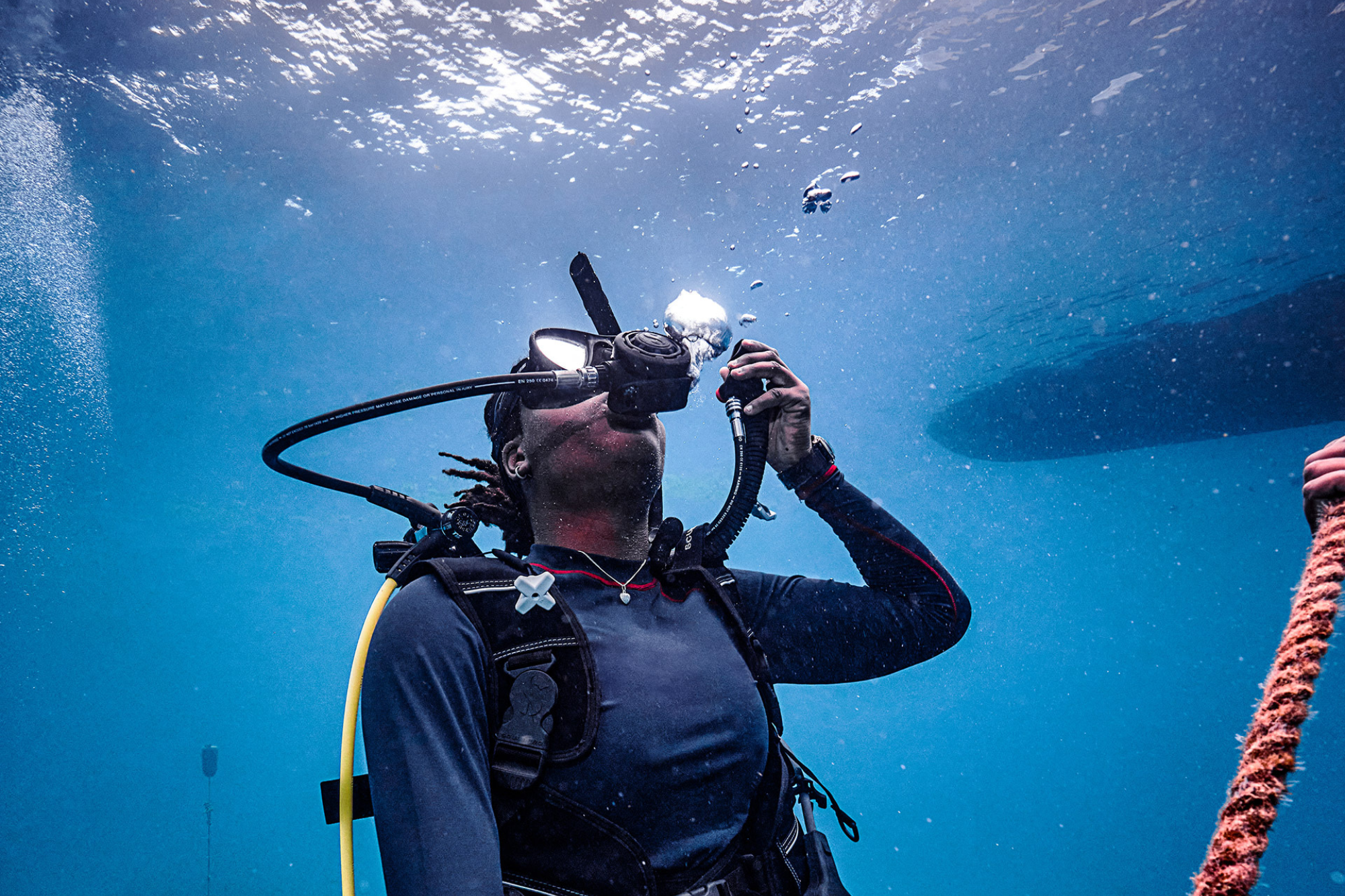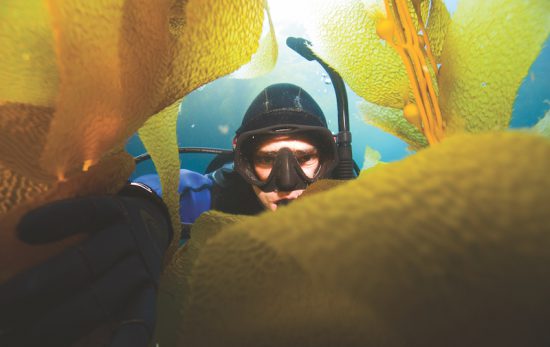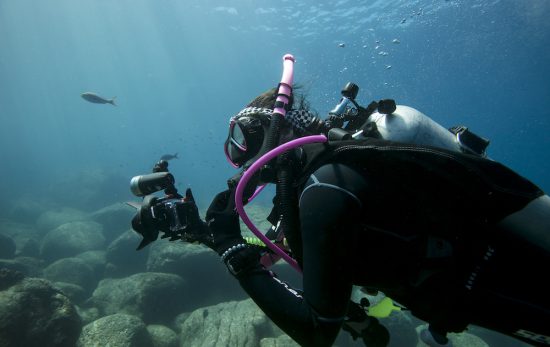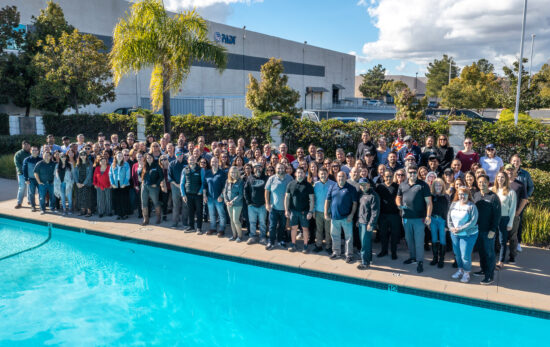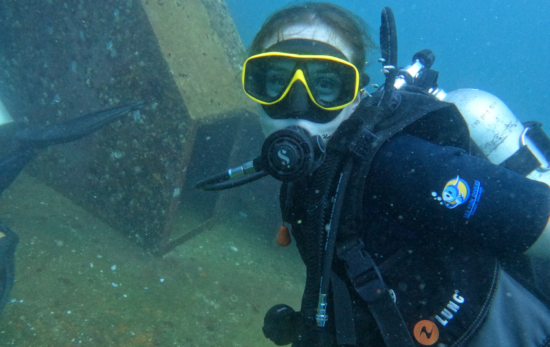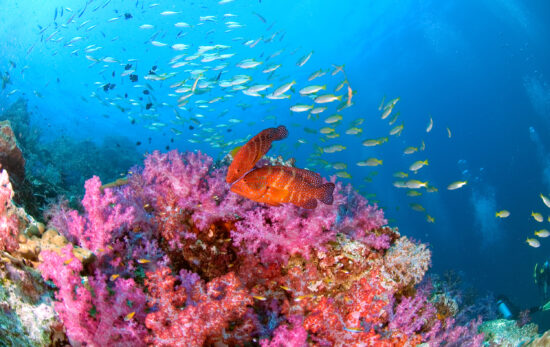The PADI Master Scuba Diver™ rating is considered the highest recreational diving level and is often referred to as the “Black Belt” of scuba diving. Master Scuba Divers sharpen their abilities through core and specialty courses and log at least 50 dives before they attain their rating. The journey to attaining the Master Scuba Diver rating also builds confidence in and out of water as divers take on life-transforming skills via the PADI Rescue Diver course, which teaches emergency response and diver rescue.
Divers may apply for the PADI Master Scuba Diver rating after they have completed:
- The PADI Open Water Diver course
- The PADI Advanced Open Water Diver course
- The PADI Rescue Diver course
- 5 PADI Specialty Diver courses
- Logged 50 dives
If you aim to be the best of the best among recreational divers, taking on the challenge to become a Master Scuba Diver is a great way to advance your skills, for yourself and to be a better dive buddy.
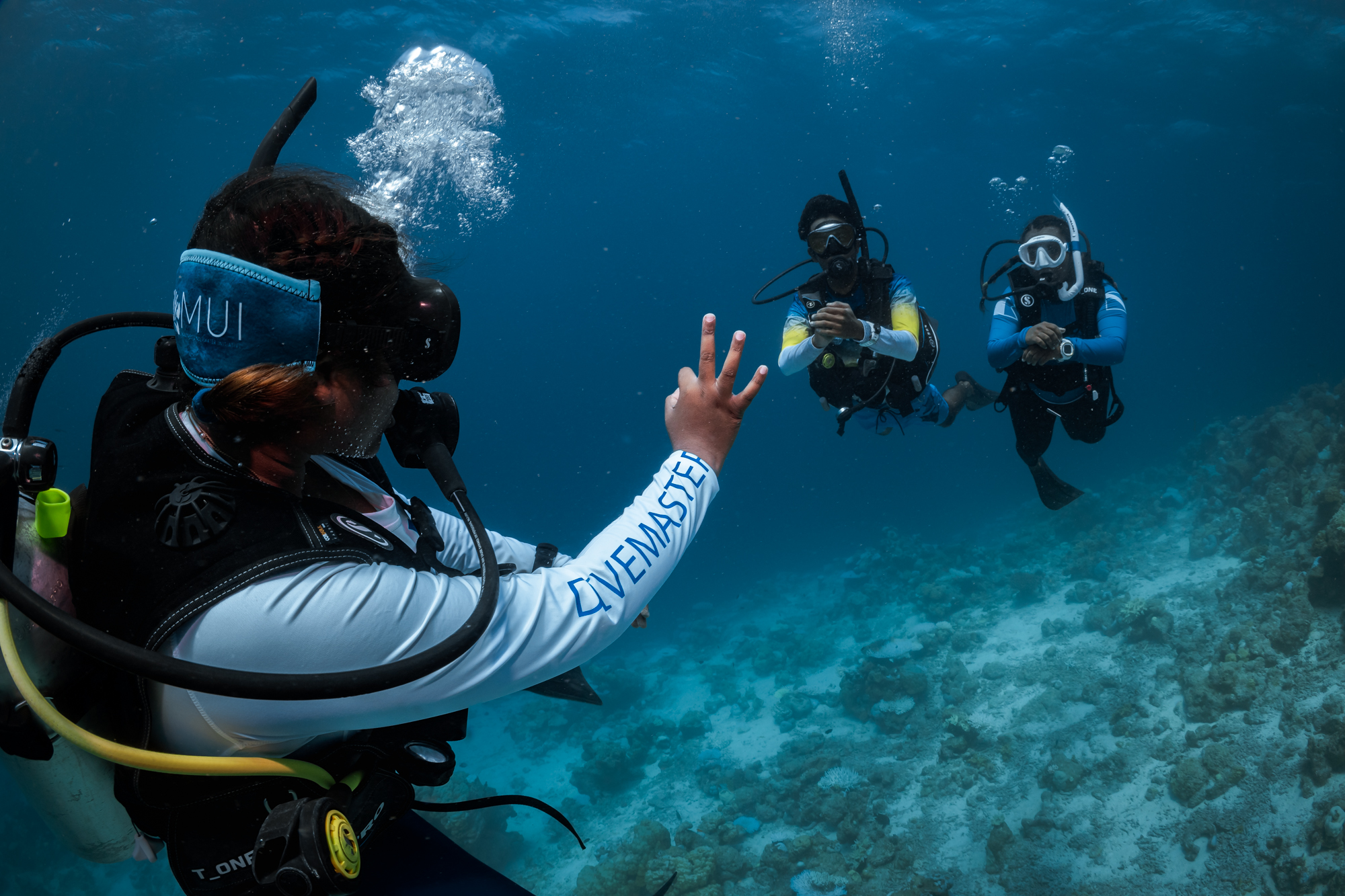
1. You’ll Expand Your Diving Skillset
Wherever you’re diving in the world, conditions can be unpredictable and the more skills and knowledge you have, the better equipped you are to deal with them.
Let’s take wreck diving as an example. The PADI Wreck Diver Specialty course consists of four wreck dives and will give you the necessary skills to map a wreck, to assess the wreck for potential hazards and penetration points and to safely enter a wreck. However, wreck diving also relies on having excellent buoyancy skills, an ability to navigate, knowing how to deal with low light conditions and what happens if there is some current, too? By taking a range of PADI specialties, you’ll start to see how they overlap and you’ll have a broader skill base to act accordingly – in a wide range of situations.
Specialty courses also mean more time with a PADI Instructor. During your PADI training, you’ll learn more from your instructor than just the content of the course. Whether it’s noticing how they use different finning techniques during your drift dives or watching how regular their breathing bubbles are during a PADI Underwater Photographer course, you’ll be absorbing knowledge every kick of the way!
Achieving your Master Scuba Diver rating exposes you to at least five different diving conditions, which you otherwise may not have had the confidence to approach. Diving in different environments is all part of the learning curve and your diving education.
Knowing that you have a broad toolkit of tips and techniques will also give you increased confidence both in and out of the water. You’ll find you’re more comfortable during your dives and ultimately enjoy them even more.
2. You’ll Learn More About Assessing Dive Conditions
During your PADI Rescue Diver course, you’ll learn about minimizing the risk of an accident by carefully assessing situations. During your specialty certifications, you’ll also learn more about assessing conditions for safety. That means you’ll gain the knowledge to decide whether or not to dive a wreck, drift dive or night dive. As you gain skills and experience, your ability to make the right decisions will become stronger and you’ll have the confidence to speak up.
3. You’ll Be Prepared to Help Others
In addition to spending more time underwater and expanding your diving skills, you will have the chance to learn more about diver behavior. Your experience on your way to obtaining the rating will help you gain new perspectives on assessing divers before their dives and helping them to better evaluate their readiness for the dive. You will also be more confident in your diver-emergency management skills thanks to the Emergency First Response® Primary and Secondary Care and PADI Rescue Diver course requirements. These certifications will expand your knowledge and skills, which can be crucial for preventing and managing dive emergencies.
Being an experienced diver may also make you a source of information and confidence in certain dive situations. Novice divers may look up to you and have questions about their equipment, dive skills, and general dive conditions. In small dive groups, you may find yourself to be the most experienced diver, and you may be called on to help others with their dive planning and other dive preparation steps. Even if you are not ready to be a PADI Professional and take the plunge for the PADI Divemaster course quite yet, you can still greatly benefit from PADI’s Dive Theory for personal enrichment. This eLearning program will help you expand your knowledge of dive physics, physiology, equipment, decompression theory, and dive planning.
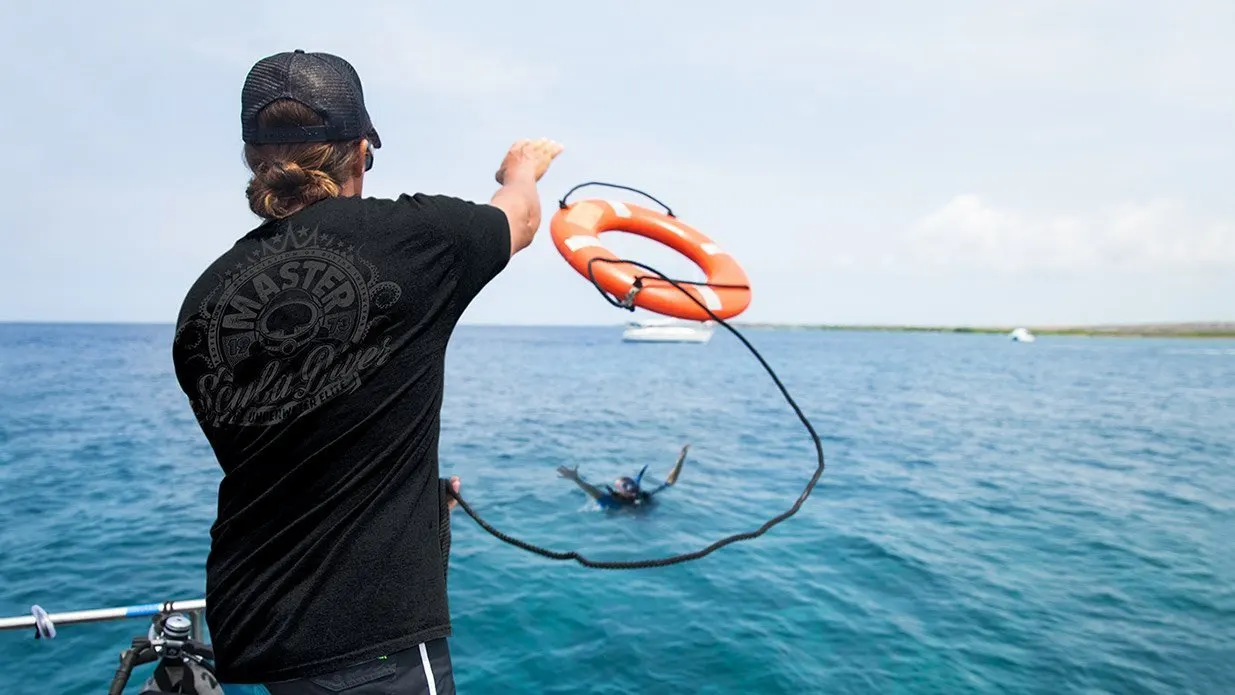
What’s the Difference Between PADI Master Scuba Diver and PADI Divemaster?
It’s worth noting that the PADI Master Scuba Diver™ and PADI Divemaster are two very different ratings. The PADI Divemaster course is the first level for those who want to become professional divers, and the focus is on looking after other divers and assisting PADI Instructors during PADI courses. You can read more about the differences between these two courses here.
If you want to develop your own skills, you want to become the best diver you can be and you are not interested in a career in diving just yet (or at all), then PADI Specialty Diver courses and the Master Scuba Diver rating are a great route for you to take.
Join the 2024 Master Scuba Diver Challenge
If you’d like to be the best of the best recreational divers, there is no better time than now. Start your PADI Master Scuba Diver journey today and you can enter to win a trip for two to the Vilamendhoo Island Resort & Spa, one of the Maldives’ best dive resorts! Take the challenge with your favorite dive buddy to increase your chances of winning.
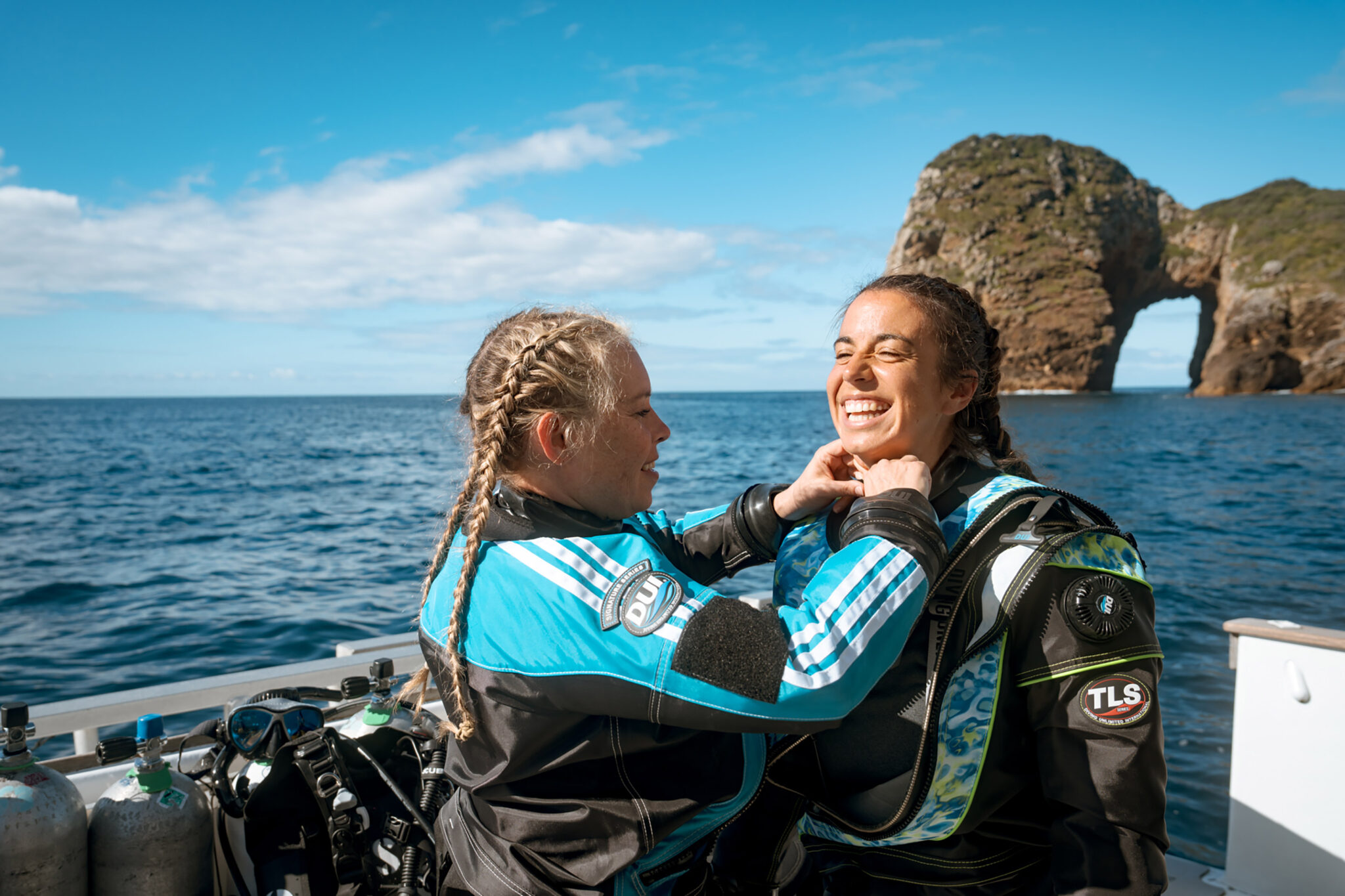
Choose Your Specialty
There are currently over 20 different PADI Specialty Diver courses to choose from as well as numerous Distinctive Specialties and PADI AWARE® or other conservation-focused courses. After you’ve reached the Master Scuba Diver level, you can continue taking PADI Specialties to keep expanding your skills and exploring new areas. Remember that you get back from diving what you put in and taking on new challenges is incredibly rewarding. If you just want a black belt and bragging rights? Well, that works too! However for others it’s a personal journey and a fulfilling one!
